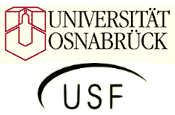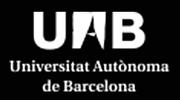 |
The Institute of Environmental Systems Research (USF) at the University of Osnabrück is devoted to
developing innovative concepts of managing transformation processes towards sustainability with an emphasis on
improved understanding of the dynamics of actor networks, participatory integrated assessment and scenario analysis.
This is of use both for the analysis of barriers to and drivers of the transition to a sustainable integrated
landscape management culture as well as for the participatory exploration of sustainable paths.
|
 |
IIASA is an expert in interdisciplinary and policy-oriented research in the context of global
change. Its expertise in the examination of problems characterized by complex combinations of ecological,
economic and socio-political factors is useful for analyzing the complex interactions related to sustainable
landscape management. IIASA's experience in conceptual modelling, in both the natural and social sciences,
helps to examine interdependencies between ecosystem services as well as structural and agent-based factors in
processes of individual and societal learning and change.
|
 |
Delft University of Technology develops technologies for future generations, focusing on
sustainability, safety, and economic vitality. The faculty of Technology, Policy and Management (TPM) at TUD
is a centre of interdisciplinary research dedicated to the development of concepts, methods and tools for
problem-solving in multi-stakeholder contexts. Research at TPM focuses on the design, management,
and evaluation of participatory decision-making processes, conceptual modelling, actor network analysis,
scenario approaches, and gaming/simulation, notably in the area of water management and spatial
planning.
|
 |
The Institute of Environmental Science and Technology (IEST) is the largest interdisciplinary
environmental research centre in Spain. It is constituted by more than eighty lecturers and researchers from
eighteen departments of the Autonomous University of Barcelona, covering a wide range of fields,
including ecological economics, environmental sociology, earth system sciences, land use planning, life sciences,
integrated assessment, environmental design, corporate environmental management, legal studies, education and
communication, and environmental information technologies.
|
 |
The Stockholm Resilience Centre (SRC) is an international centre that advances transdisciplinary
research for governance of social-ecological systems with a special emphasis on resilience – the ability to deal
with change and continue to develop. Established in 2007, it is a joint initiative between Stockholm University,
the Stockholm Environment Institute and the Beijer International Institute of Ecological Economics at The Royal
Swedish Academy of Sciences. Research at the SRC focuses on principles for resource and environmental management
and new approaches to governance and management of linked social-ecological systems that are necessary in order
to deal with global environmental change.
|
 |
Seecon Deutschland GmbH (Seecon) is an internationally active SME with vast experiences in research
and project management related to projects concerning economic, political, social and environmental changes. It
provides authorities, universities and companies, across Europe, with methods, training/capacity building and support
in designing, implementing and evaluating participatory and integrated processes. The aim is to bring stakeholders
across sectors and from different management levels together in dialogue, and to facilitate integrated planning of
their environmental resources. Favoured methods in achieving this are based on experimental learning and participatory
modelling.
|
 |
RISSAC is the scientific centre in Hungary for soil science, agrochemistry and soil biology. The
Institute is responsible primarily for fundamental research in these fields with significant applied research,
education, advisory and information activities and extensive national and international cooperation. RISSAC is
the coordination centre of numerous national and international programmes. RISSAC has profound knowledge of
land and water management in the Tisza basin. It has conducted research on bottom-up movements that engage
in sustainability-driven actions in this area and try to influence policy in order to achieve a shift of
management practices towards sustainability.
|

























